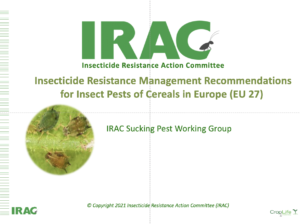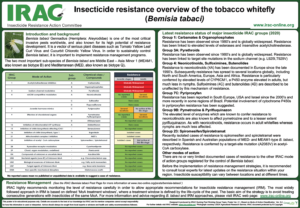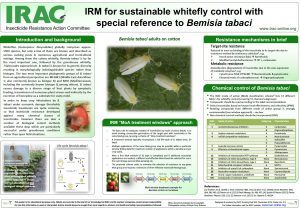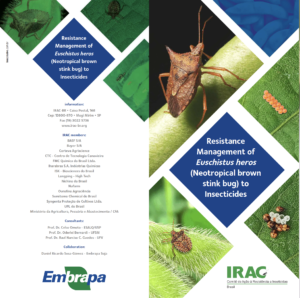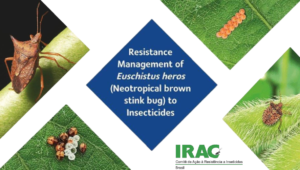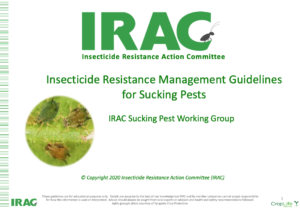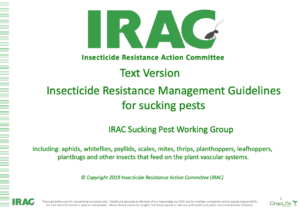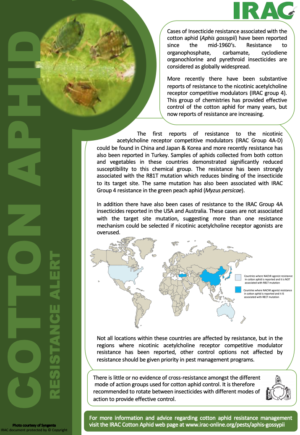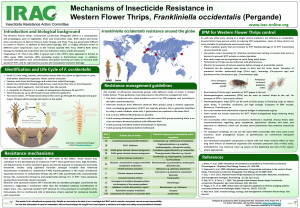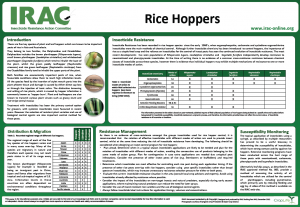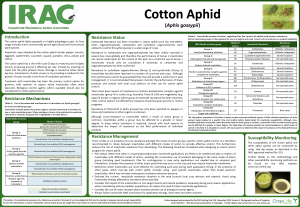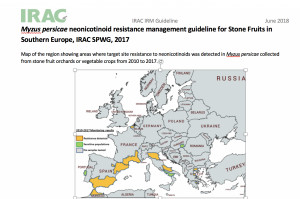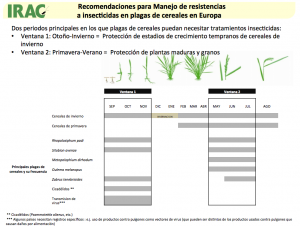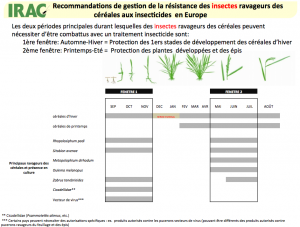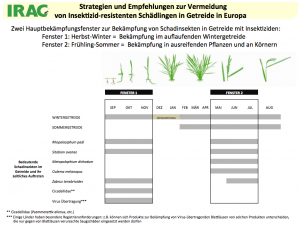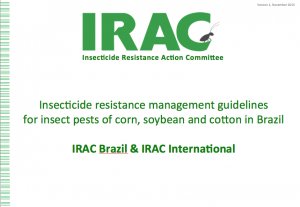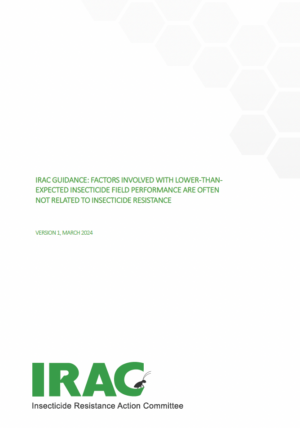The Sucking Pest WG was formed in 2008 to develop and disseminate IRM strategies for major sucking pests of global importance. It is recognised that this is a broad remit given the range of crops and pests, but by focusing on specific areas, the team is convinced that it can deliver strategies for key pests such as whiteflies, aphids and thrips, before moving on to consider other groups. The Sucking Pest WG absorbed the earlier Neonicotinoid WG in 2009 as there was significant overlap between the teams and it was considered more appropriate to have a WG covering all chemistries and based on pest type.
Recent Activity
This is an update of the Myzus persicae resistance alert and management recommendations issued in January 2013 by the IRAC Sucking Pest Working Group. The resistance is based on a target-site mutation which strongly affects neonicotinoid efficacy. The results of surveys from 2010 to 2013 confirmed the spread and presence of the resistant aphids in many of the stone fruit orchards of Southern France, Spain and Italy. Recent findings proved the resistance also in Greece, Morocco and Tunisia in stone fruit orchards and it was found even in Belgium in greenhouse vegetables. In the last few years the resistant strains were found in several greenhouse and open field vegetable plantations across Southern Europe. View the most recent alert information.
Map of the region showing areas (yellow) where R81T target site resistance was detected in Myzus persicae collected from stone fruit orchards or vegetable crops between 2010 and 2018
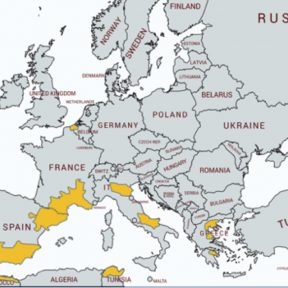
Team Objectives
- Short term actions to minimize the spread of resistant sucking pests
- Prepare IRM guidelines for pests with, or at risk of developing resistance in the mid-term
- Prepare for future sucking pest problems long term (avoid resistance development
